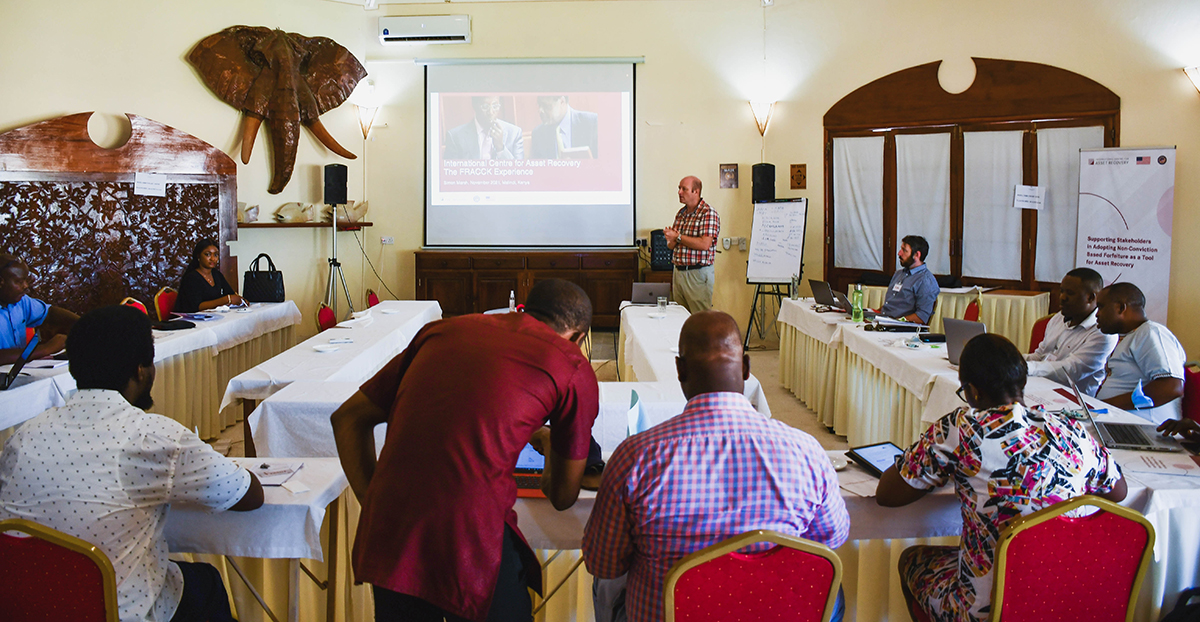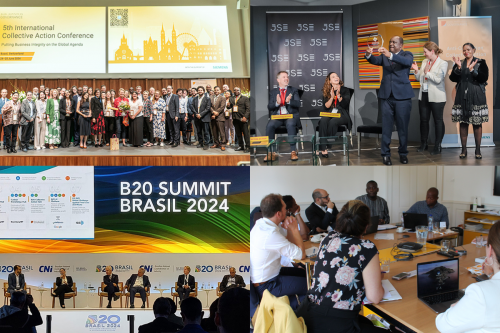Recovering illicit assets in Sub-Saharan Africa: regional workshop on non-conviction based forfeiture

Anti-corruption investigators and prosecutors from Kenya, Sierra Leone and Zambia joined experts from our International Centre for Asset Recovery on 16–18 November to share experiences of non-conviction based forfeiture (NCBF) laws in their countries.
NCBF laws allow courts to confiscate assets of a criminal nature, even where no conviction has been obtained in relation to criminal conduct. They are a powerful complement to other asset recovery mechanisms, especially in cases where a criminal conviction is not possible because the suspect is dead, has fled justice or is immune from prosecution.
Despite the promise and the success of countries in applying NCBF laws, including for example Kenya's use of its civil illicit enrichment law, such mechanisms are not yet widespread or effectively used in many countries.
Key insights
Over the 2.5-day workshop at the Ocean Beach Resort in Malindi, Kenya, the participants shared positive experiences, challenges and case studies from their own contexts. These included:
- NCBF laws extend the possibilities to recover illicit assets – including, for example, in cases where it is not possible to prove criminal activity beyond reasonable doubt.
- An increased focus on financial investigations and asset tracing will help law enforcement identify more cases with the potential for asset recovery, and make it more likely that NBCF will be used in cases where convictions are not possible.
- Using visual methods to convey complex cases will increase their chances of success in court, as will engaging with the judiciary to help develop understanding of NCBF mechanisms. The creation of specialised courts may also be useful.
- Public support for NCBF laws is crucial, which requires community outreach and the use of recovered funds in a visibly beneficial way.
- Clear and effective systems for asset management can maximise the value of assets throughout proceedings, and reduce liability for the state if the application for forfeiture fails.
The value of exchange
As well as learning from one another and from experts of our International Centre for Asset Recovery (ICAR), which organised the workshop, the participants built valuable relationships that will support future collaboration on NCBF cases and lawmaking.
Participants agreed that this sort of coordination was vital and can lead to higher amounts being recovered.
One participant commented:
"We have learned a lot from each other, from how the different laws work and for example how one jurisdiction manages recovered assets with a dedicated asset management unit.
Thanks to this exchange of information, we will be able to enhance our possibilities to recover illicit assets through non-conviction based means, in the civil courts."
Another emphasised that:
"We believe that non-conviction based forfeiture laws are a really significant way to fight corruption. There is the deterrent factor, which is huge. It also deprives the person from benefiting from the proceeds of crime.
Recovering assets in this way helps to make corruption not just expensive – through fines and sanctions – but also unprofitable, because we get back the money that was stolen."
About the workshop
The regional workshop is part of an ambitious project to help increase the capacity of countries in Latin America and Sub-Saharan Africa to recover stolen assets through effective, appropriate NCBF legislation. Ten partner countries are involved in the two-year project, which is funded by the Bureau of International Narcotics and Law Enforcement Affairs (INL) of the US Department of State.
13 practitioners attended the workshop, from Kenya's Ethics and Anti-Corruption Commission, the Sierra Leone Anti-Corruption Commission and the Zambian Anti-Corruption Commission.
Learn more
- Our free eLearning courses offer the chance to learn and practise many of the skills that participants noted were crucial to successful application of NCBF laws. The self-paced courses cover topics such as financial analysis, asset tracing, and creating visual graphs of cases and flows of money. Visit Basel LEARN.
- To help increase understanding of illicit enrichment / unexplained wealth mechanisms for asset recovery, we recently developed and published an open-access book Illicit Enrichment: A Guide to Laws Targeting Unexplained Wealth. Andrew Dornbierer, Asset Recovery Specialist and author of the book, was also present at the workshop.
- Asset management is an integral part of the asset recovery process. This blog post covers asset management in brief, with a focus on international norms.



